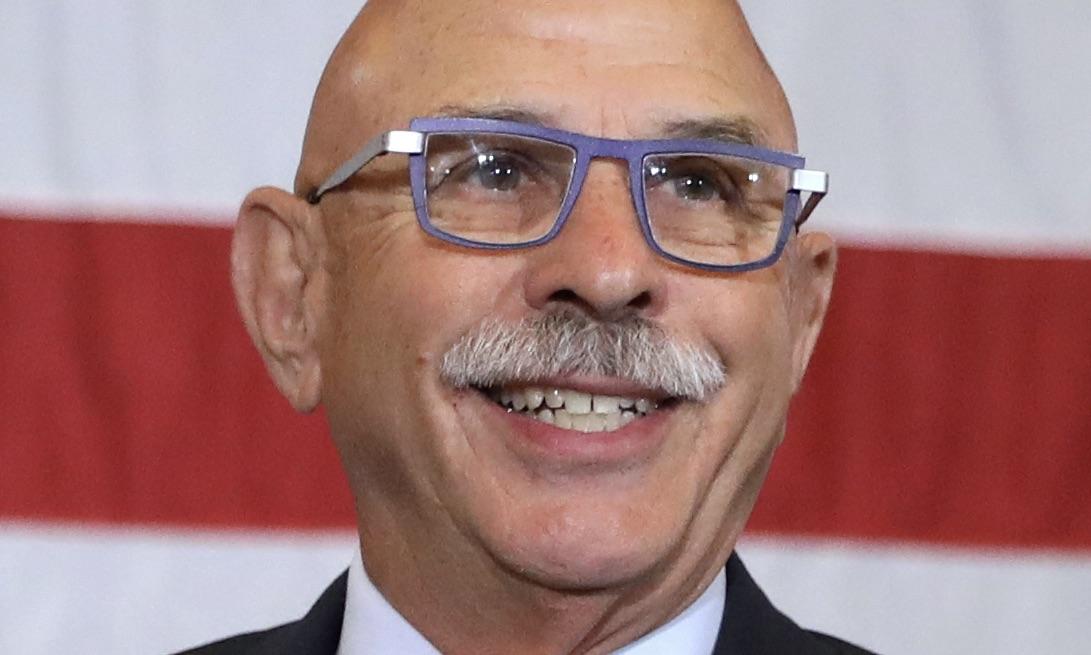Illinois State Representative Dan Caulkins has introduced legislation aimed at tightening election laws by targeting individuals who knowingly register noncitizens to vote in federal and municipal elections. The proposed bill would make such actions a class four felony, marking a significant shift in Illinois’ approach to voter fraud prevention.
The bill, filed by Caulkins, comes amid growing concerns nationwide over election integrity and the potential for noncitizens to participate in U.S. elections. Although there is no substantial evidence of widespread noncitizen voting, the proposed legislation highlights fears surrounding the issue and the push for stricter election laws.
The bill’s supporters argue that more stringent laws are necessary to ensure the integrity of elections, particularly in a state like Illinois, where election regulations have been under scrutiny. Critics, however, contend that the legislation may create an atmosphere of fear and distrust, particularly among immigrant communities, and could potentially deter legitimate voter registration efforts.
Under Caulkins’ bill, anyone found guilty of knowingly registering a noncitizen to vote would face felony charges, which carry serious legal consequences, including potential imprisonment. The bill is seen as part of a broader effort among Republicans to crack down on voter fraud, a key issue in recent election cycles.
If passed, the legislation would add Illinois to the growing list of states taking a hardline stance on voter registration laws. However, it remains to be seen whether the bill will gain traction in a state legislature dominated by Democrats, many of whom are likely to oppose the measure on the grounds of voter suppression concerns.
As the debate over election laws continues, this latest move by Caulkins underscores the ongoing polarization over how best to secure the voting process in the U.S.



 Israel Strikes Hezbollah Targets in Lebanon After Missile and Drone Attacks
Israel Strikes Hezbollah Targets in Lebanon After Missile and Drone Attacks  UK Accepts U.S. Request to Use British Bases for Defensive Strikes on Iranian Missiles
UK Accepts U.S. Request to Use British Bases for Defensive Strikes on Iranian Missiles  Trump Announces U.S. Strikes on Iran Navy as Conflict Escalates
Trump Announces U.S. Strikes on Iran Navy as Conflict Escalates  Iran Detains U.S. Citizens Amid Escalating Conflict With the United States and Israel
Iran Detains U.S. Citizens Amid Escalating Conflict With the United States and Israel  Trump to Attend White House Correspondents’ Dinner 2026, Ending Long Boycott
Trump to Attend White House Correspondents’ Dinner 2026, Ending Long Boycott  Trump Says U.S. Attacks on Iran Will Continue, Warns of More American Casualties
Trump Says U.S. Attacks on Iran Will Continue, Warns of More American Casualties  Trump Says U.S. Combat Operations in Iran Will Continue Until Objectives Are Met
Trump Says U.S. Combat Operations in Iran Will Continue Until Objectives Are Met  Suspected Drone Strike Hits RAF Akrotiri Base in Cyprus, Causing Limited Damage
Suspected Drone Strike Hits RAF Akrotiri Base in Cyprus, Causing Limited Damage  Supreme Court Backs GOP Lawmaker in New York Redistricting Fight Ahead of Midterms
Supreme Court Backs GOP Lawmaker in New York Redistricting Fight Ahead of Midterms  Trump’s Iran Strikes Spark War Powers Clash in Congress
Trump’s Iran Strikes Spark War Powers Clash in Congress  Trump and Merz Meet at White House Amid Iran Strikes and Trade Tensions
Trump and Merz Meet at White House Amid Iran Strikes and Trade Tensions  Melania Trump Chairs Historic U.N. Security Council Meeting on Children Amid Iran Conflict
Melania Trump Chairs Historic U.N. Security Council Meeting on Children Amid Iran Conflict  EU Urges Maximum Restraint in Iran Conflict Amid Fears of Regional Escalation and Oil Supply Disruption
EU Urges Maximum Restraint in Iran Conflict Amid Fears of Regional Escalation and Oil Supply Disruption  Why did Iran bomb Dubai? A Middle East expert explains the regional alliances at play
Why did Iran bomb Dubai? A Middle East expert explains the regional alliances at play  U.S. Lawmakers Question Trump’s Iran Strategy After Joint U.S.-Israeli Strikes
U.S. Lawmakers Question Trump’s Iran Strategy After Joint U.S.-Israeli Strikes  Israel Prepares Weeks-Long Military Campaign Against Iran Amid Escalating Air Strikes
Israel Prepares Weeks-Long Military Campaign Against Iran Amid Escalating Air Strikes 































